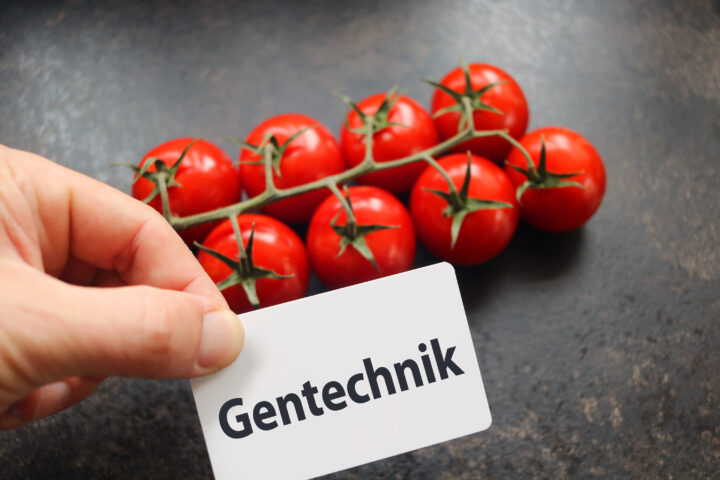
Genome editing for livestock farming
More than 800 animal scientists met recently at the annual meeting of the European Federation of Animal Science (EAAP) in Davos, Switzerland, to discuss challenges and solutions relating to the future of livestock breeding and farming. At the meeting, on thing became apparent: Genome editing is gaining importance in this sector, too.
Wednesday, September 15, 2021
The American animal scientist Jack H. Britt, is convinced that improving animal genetics and increasing feeding efficiency can have a significant impact on climate change. Dairy cattle genetics are evolving, says Britt. And, he adds, genomics are the key to selecting young animals for breeding. Britt is quick to point out that “We’re working on genome editing – not genetic engineering.” In his view, this breeding method is an important factor in securing the food supply for the human population. The cow of the future will be, he says, healthier, more fertile and less of a burden to the environment.
Important role of epigenetics
Britt also spoke about epigenetics, a field that he views as highly significant and deserving of a lot more attention in the future. This new discipline within genetics looks at changes in gene expression that result from changes in enzyme access to DNA strands rather than changes to the DNA sequence itself. Britt showed epigenetic effects resulting from heat stress among cows and their offspring. For example, studies show that the female offspring of heat-stressed cows produce less milk than daughters of cows that were not subjected to heat stress. This effect has even been documented in the third generation of female offspring. “We’re only beginning to understand these epigenetic effects,” says Britt. He surmises that epigenetics have a greater influence on animal characteristics than the genes themselves.
Britt also mentions the fodder plants, stating that feeding genome-edited plants also resulted in significant increases in yield. In one example, scientists were able to make a plant absorb considerably more sunlight, and thus increase plant yield by 20 percent by simply turning off a gene.
Related articles

ARTE documentary: Genetic engineering in organic farming?
The ARTE documentary “Genetic engineering in organic farming?” examines key controversial questions of modern agriculture: Is the general exclusion of new breeding technologies still up to date? Can the resistance of organic farming be justified scientifically?

The Great Suffering of Farmers
Fire blight, Japanese beetles, or grapevine yellows – farmers in Valais, too, are increasingly feeling helpless in the face of the threats posed by nature. More and more often, they lack the means to effectively protect their crops. This makes it all the more important for the Federal Council to place a pragmatic balancing of interests at the forefront when setting threshold values.

Tomatoes in Front of Their Eyes
The submitted “Food Protection Initiative” calls for “GMO-free food.” Leaving aside this illusory demand, its adoption would mean more bureaucracy, more trade barriers, and less innovation. The Swiss Farmers’ Union describes the proposal as “unnecessary” and warns of a setback to the goal of achieving an even more sustainable agriculture.

How our daily lives end up in the water
When residues in our waters are discussed, agriculture is often portrayed as the main culprit. Yet a closer look shows that the sources are diverse and often much closer to everyday life than assumed.

